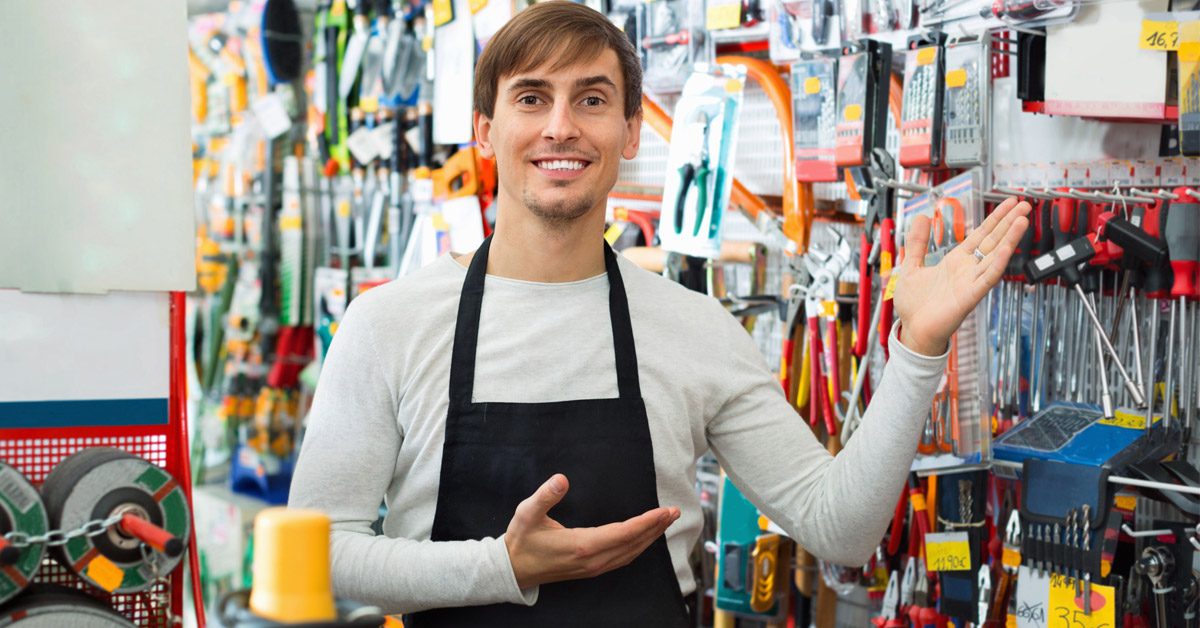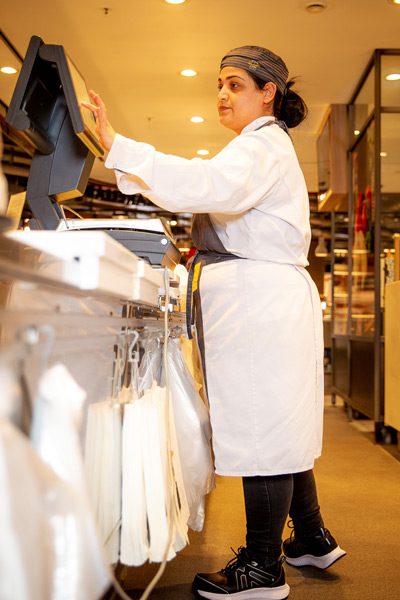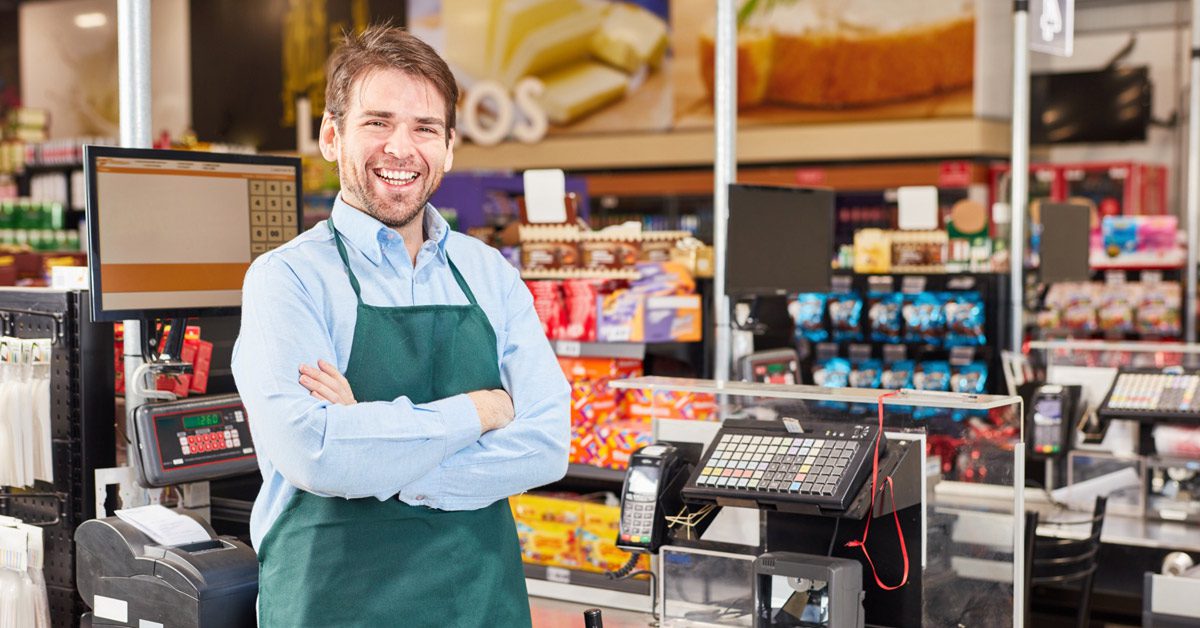4. Cuts and lacerations
It is critical to inspect machinery that needs to be updated or anything that has not been evaluated in a while. Machinery must be well-maintained to ensure proper function and precision. The retail industry relies on only a few relatively large machines to carry out day-to-day tasks such as loading and unloading merchandise and organising goods on the floor.
One of the major risks when operating heavy machinery is the potential to get cut on a sharp edge. Another could be failure to measure a safe distance between one’s fingers and any blades, openings or closures. Proper footwear and safety wear such as goggles, gloves and ear plugs can help prevent any potential workplace injuries revolving around machinery.
5. Slips and trips
Slips and trips are serious workplace injuries and can lead to major health complications. Slips, trips and falls account for 30% of all non-fatal workplace injuries in the UK. Retailers who stock large quantities of liquid products, such as Screwfix, Homebase, and those that receive a high amount of foot traffic can face a higher risk.
Slippery surfaces caused by accidental spillage or leakage do pose a danger but managers also need to be aware of the potential damage to the store’s flooring. Uneven floors and other trip hazards could result in an increase in workplace injuries at supermarkets and retail shops. Wearing properly cushioned, slip-resistant footwear at all times will also greatly prevent any potential falls caused by wet floors or spilled liquids.
6. Repetitive sprains and strains
Scanning large shopping purchases, running price checks, typing and organising inventory are just a few of the many repetitive tasks supermarket employees face on a regular basis. These types of strains are also known as RSIs. Ergonomic workplace injuries such as carpal tunnel syndrome, tendonitis and back pain can all occur when a repetitive strain gets exacerbated for a continuous period of time.
Encourage employees to take periodic breaks to vary their standing or sitting positions to help them maintain proper posture. They can also stretch before their shift starts and keep an eye on their own personal activity so as to not overexert themselves during their shifts. Evaluating the quality of their work shoes and other equipment is another key step in helping to prevent muscle strains on the job.
At Shoes For Crews, we are fully committed to providing high-quality, slip-resistant footwear for retail store employees. We understand that the primary way to protect your team is to prevent workplace injuries before they happen. That is why it is important to periodically review the essential best practices to implement in supermarkets to promote a safe environment for both employees and customers. Most safety hazards and potential accidents can be prevented by following proper precautions and being aware of the dangers inside retail stores.
If your retail employees are in need of an upgrade of their current workwear, we encourage you to check out these 5 innovative styles by Shoes For Crews. Our styles work well on all types of surfaces and they are suitable for many different positions from large supermarkets to small retail shops. To learn more about specific features and styles, contact our experts. Or download our Buyers Guide to view our full range of footwear solutions.






